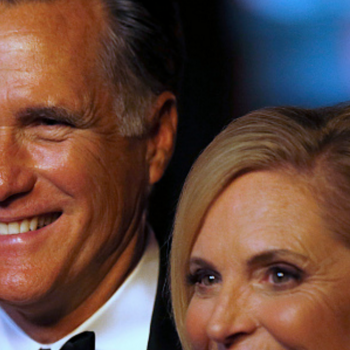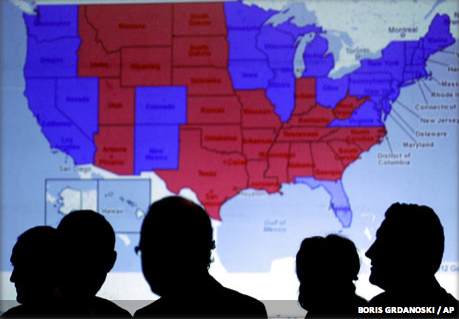Yesterday the Daily Caller highlighted an excerpt from Jake Tapper’s interview with Rick Warren. In light of Mitt Romney’s all-but-inevitable nomination, he asked Warren, “Are Mormons Christians?” Here’s Warren’s response:
“The key sticking point for evangelicals and actually for many is the issue of the trinity,” Warren said. “That’s a historic doctrine of the church — that God is three in one. Not three Gods, one God in father, son and Holy Spirit. Mormonism denies that. That’s a sticking point for a lot of Catholic Christians, evangelical Christians, pentecostal Christians because they don’t believe that. Now, they’ll use the same terminology. But they don’t believe in the historic doctrine of the trinity. And people have tried to make it other issues, but that’s one of the fundamental differences.”
But let’s think about this for a minute. Is this really where pastors want to circle the wagons? I have three questions:
1. Is Warren’s statement correct as a defining characteristic of Christian belief? In other words, is the creedal belief in the Trinity the dividing line between Christian and non-Christian?
2. If it is correct, where does that leave the millions and millions of members of Catholic and Protestant churches who, frankly, don’t have the slightest clue about the Trinity? I’ve been in church my whole life and can barely remember any in-depth studies of the nature of the Trinity. In fact, responses to questions about the Trinity depend directly on the way the questions are asked. Phrase the Trinity question one way, and it appears that rank and file Christians have sharply divergent views from Mormons. Phrase it a different way, and there’s remarkable unity. This suggests a great deal of uncertainty.
3. If creedal belief in the Trinity is the defining characteristic, and we don’t want to exclude from Christianity the millions of Catholics and Protestants who don’t know what the heck they believe, is the real dividing line then “creedal belief in the Trinity and/or attendance at a church holding a creedal belief in the Trinity?” But that can’t be it, can it? After all, our church’s theological righteousness is not imputed to us as individuals.
I think Warren was answering a different question than the one Jake Tapper asked. Tapper asked, “Are Mormons Christians?” not “Is Mormon theology historically orthodox?” Here’s my shot at answering the latter question: “No, LDS theology is not orthodox. In fact, like other church movements in the 19th century, it was a direct repudiation of what it believes to be the theological error of the orthodox, institutional church as embodied not just in the creeds but also historical practices. It was attempting to restore Christianity to what it perceived to be core truth.”
But what about Tapper’s actual question? Isn’t that the question that’s truly interesting? After all, “orthodoxy” isn’t really that much of a popular concern compared to the core identity as a Christian. Here’s how I’d answer Tapper:
Jake, a Christian is a follower of Jesus Christ. Romans 10:9 says that if you confess with your mouth that ‘Jesus is Lord’ and believe in your heart that God raised him from the dead, then you will be saved. Christian identity is not defined by categories but instead by that simple confession and belief, and only God knows who has made that confession and who has that belief. I don’t know whether any given member of the Mormon church is a Christian any more than I know whether any given member of my own church is a Christian. That’s not to say that doctrine doesn’t matter — it does, greatly — but a person can be in error on important doctrines and yet Christ has called them to that core confession and belief.
One final note: I’d argue that our view of salvation — whether Arminian or Reformed — is of enormous consequence, going directly not only to the nature of God but also how we understand each moment of our lives, yet I rarely hear anyone seriously ask, “Are Methodists Christian?” Perhaps that’s not so much because the theological differences aren’t real and profound but because we’ve made our historical peace through shared understanding of our faith in Christ. Perhaps its time that we make that same peace with Mormons.
You might also enjoy:
Jon Stewart Discusses Rick Santorum’s Future
What is up with this Easter sign?
Love, Marriage, Baby Carriage, Cancer?
If You’re an Evangelical, You Should be Outraged at MSNBC
Conservative Christian Parents Finally Say No to “The Bachelor”










